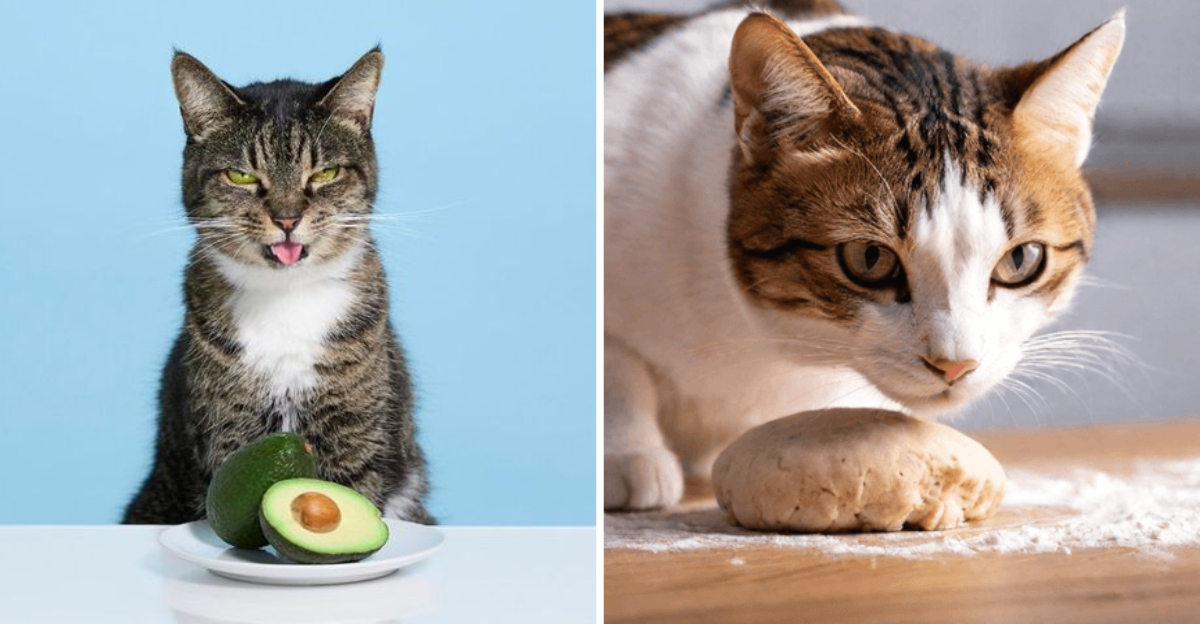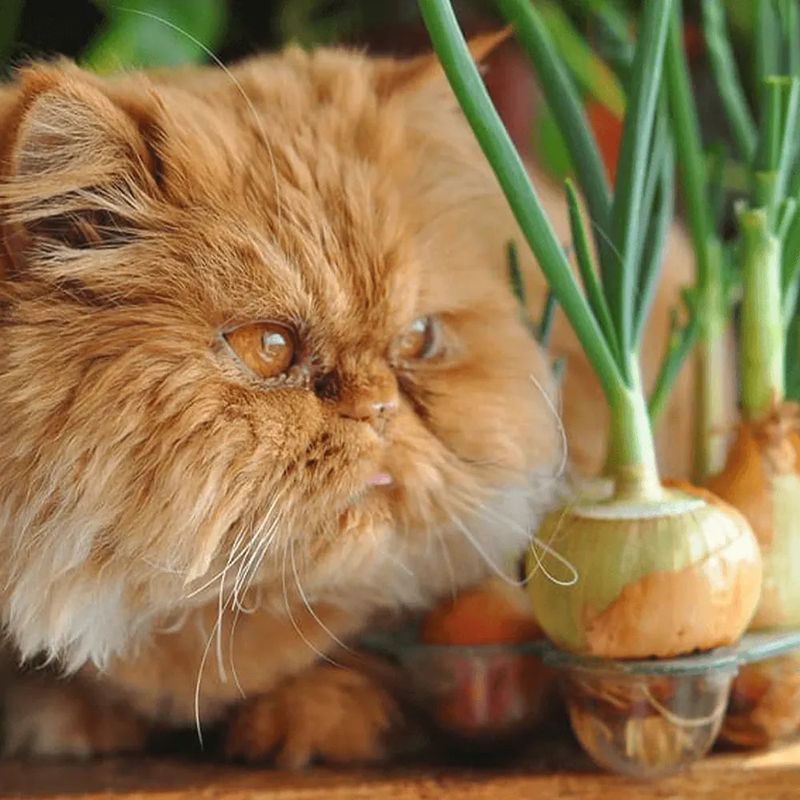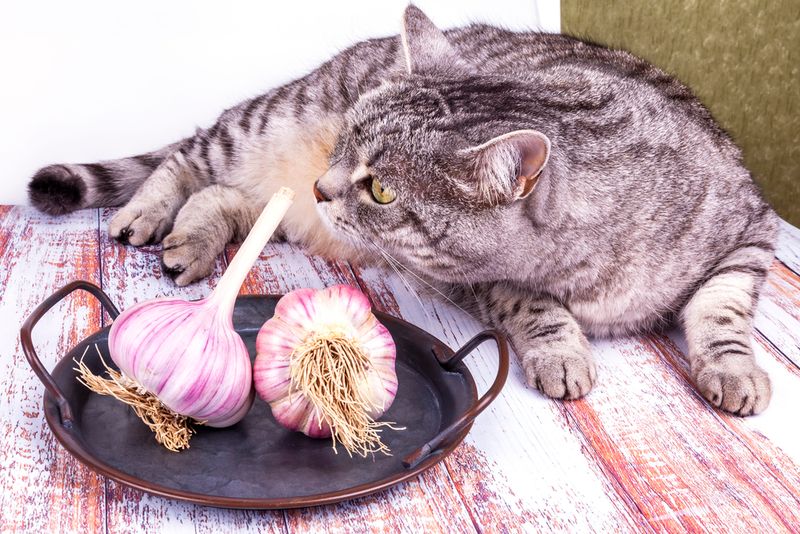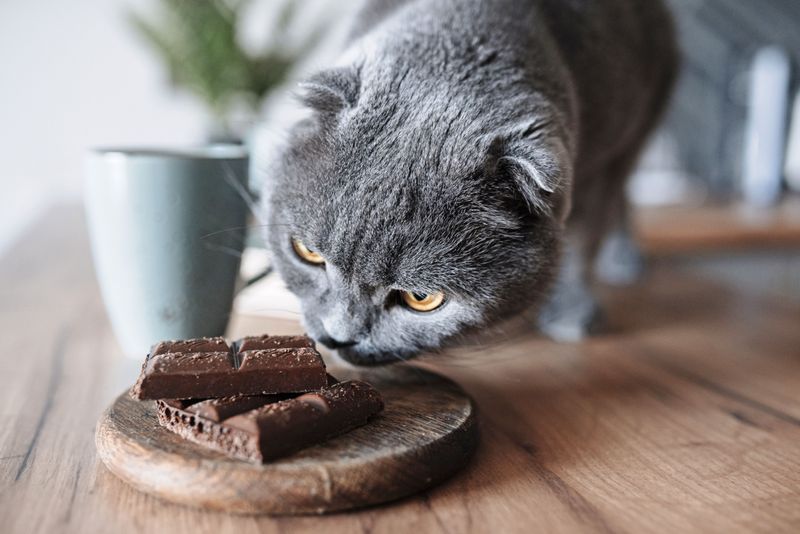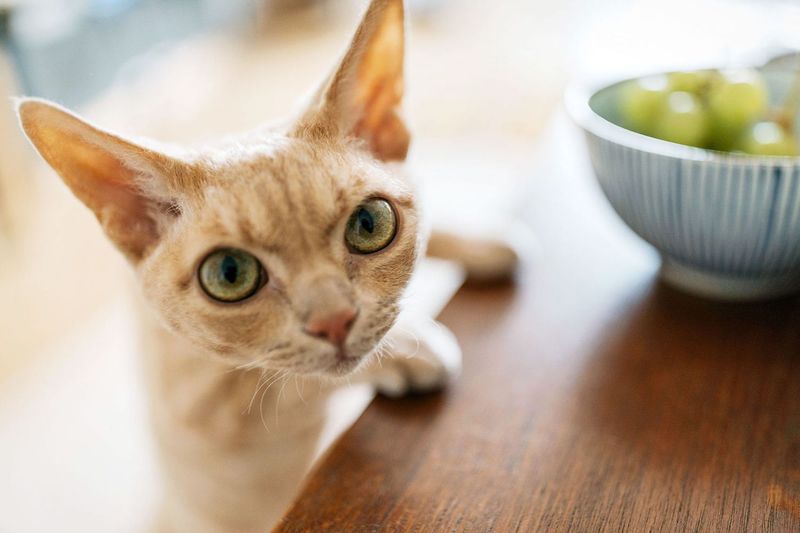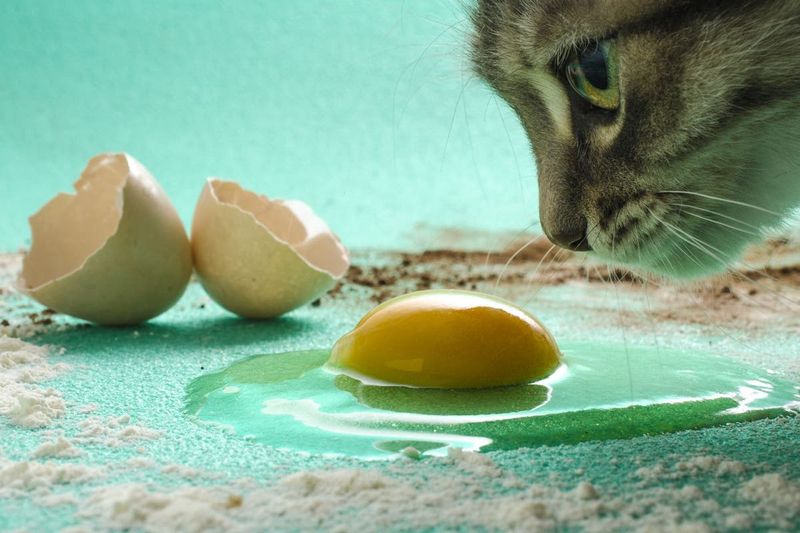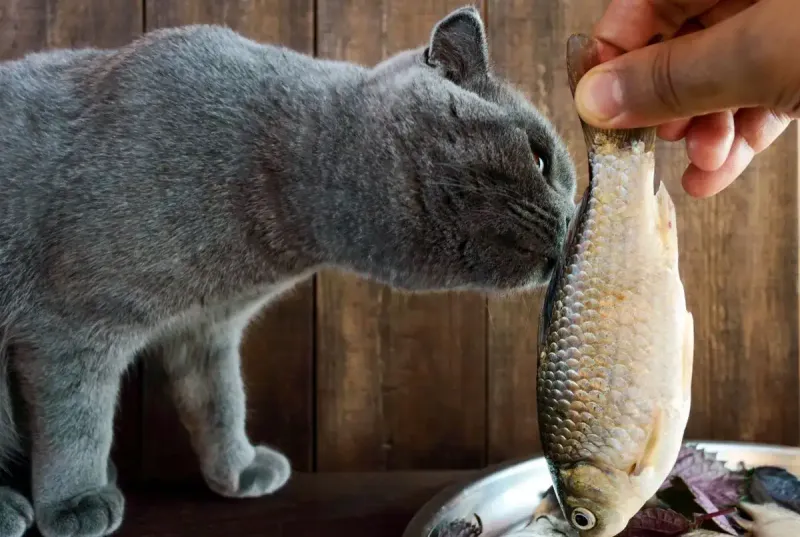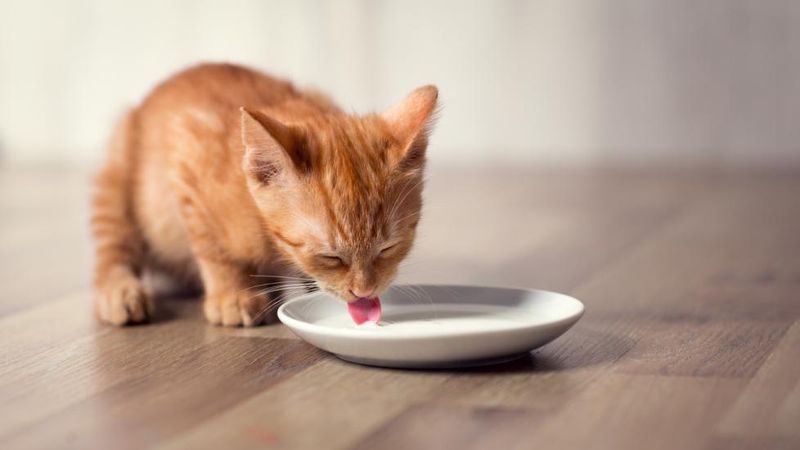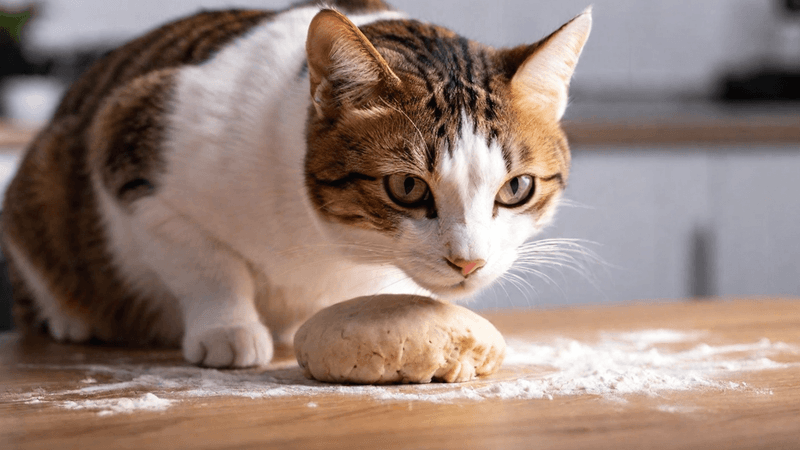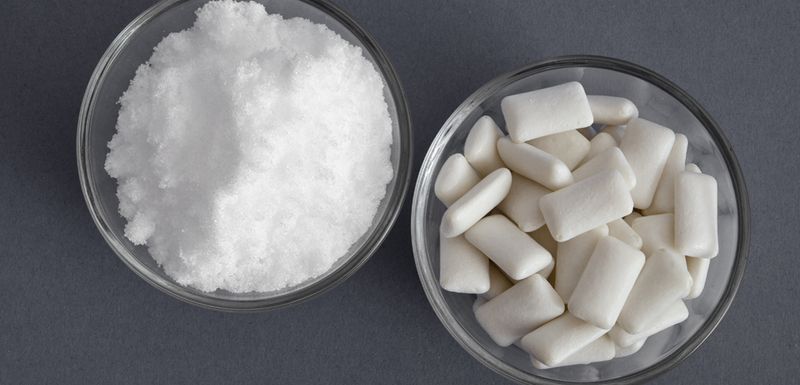📖 Table of Content:
Cats are curious creatures, often intrigued by the aromas and sights in our kitchens. While their curiosity is endearing, it can also be hazardous. Many common kitchen ingredients are harmful to cats, posing health risks that range from mild discomfort to severe illness. To ensure your feline friend stays safe and healthy, it’s essential to be aware of these dangerous ingredients and keep them out of reach. Here’s a list of 11 kitchen ingredients you must keep away from your cat to protect them from potential harm.
1. Onions
Onions might enhance our dishes, but they can wreak havoc on a cat’s health. These pungent bulbs contain compounds that can damage a cat’s red blood cells, leading to anemia. Even a small quantity, such as onion powder, can be harmful. Imagine a cat sniffing around a kitchen, enticed by the smell of cooking onions. Such a scenario can lead to unintended health consequences. Always ensure that onions are stored securely, far from a cat’s reach. If you suspect your cat has ingested onions, seek veterinary care immediately.
2. Garlic
Garlic, a staple in many households, poses serious health risks to cats. A member of the allium family, garlic can cause gastrointestinal upset and, in large amounts, damage to red blood cells. Picture a cat exploring the kitchen counter, drawn by the aroma of roasting garlic. This seemingly innocent curiosity can lead to health issues. Always store garlic away from your pets and be mindful of its inclusion in foods. If ingestion occurs, consult a veterinarian promptly to ensure your cat’s well-being.
3. Chocolate
For chocolate lovers, sharing this treat is tempting, but it’s dangerous for cats. Chocolate contains theobromine and caffeine, both toxic to felines. Visualize a cat attracted to the sweet scent of chocolate on a kitchen table. Even a small amount can lead to symptoms such as vomiting, diarrhea, and increased heart rate. It’s crucial to store chocolate securely, out of your cat’s curious reach. Immediate veterinary attention is necessary if your cat consumes chocolate to prevent severe health consequences.
4. Grapes and Raisins
Grapes and raisins, though healthy for humans, are toxic to cats. Even small amounts can cause rapid kidney failure. Picture a bowl of grapes left unattended on a kitchen counter with a cat eyeing them curiously. Such a scenario can quickly turn dangerous. Always ensure that these fruits are kept out of reach from your feline friends. If you suspect ingestion, seek immediate veterinary assistance to mitigate potential health risks.
5. Avocado
Avocados, while a superfood for humans, are problematic for cats. They contain persin, which can cause vomiting and diarrhea. Even small amounts can make a cat quite unwell.
The creamy texture might tempt a pet, but the health risks are significant. Persin is found in the flesh, pit, and leaves of the avocado plant. Vigilance is key to prevent accidental ingestion.
While cats might not usually eat avocados, keeping them stored properly is essential. Your feline’s wellbeing depends on keeping such items out of reach.
6. Caffeine
Caffeine, found in coffee, tea, and certain sodas, can be harmful to cats. Even a small sip can cause restlessness, rapid breathing, and heart palpitations. Imagine a cat drawn to the smell of freshly brewed coffee on a kitchen counter. While we enjoy this morning ritual, it’s crucial to keep cats away from caffeinated products. If your cat ingests caffeine, prompt veterinary attention is necessary to avoid severe consequences.
7. Raw Eggs
Raw eggs, often heralded for their nutritional benefits in humans, pose dangers to cats. They risk bacterial contamination, such as Salmonella, and can cause skin and coat problems due to avidin. Picture a cat intrigued by the sight of an egg cracking on a kitchen counter. This curiosity can lead to unintended health issues. Always ensure that eggs are cooked before feeding to pets and keep raw ones out of their reach.
8. Raw Fish
Raw fish, while a treat for some, can be harmful to cats. It may contain bacteria like Salmonella and enzymes that destroy thiamine, an essential B vitamin. Picture a cat eagerly sniffing at a piece of raw fish on a kitchen plate. Such an encounter can lead to severe health issues, including neurological problems. Always ensure fish is properly cooked before offering it to your pets and store raw fish securely.
9. Dairy Products
Despite the common stereotype, many cats are lactose intolerant. Dairy products can lead to digestive issues, including diarrhea and upset stomach. Visualize a cat lapping up milk from a bowl on the kitchen floor. While it may seem like a classic image, it can cause discomfort for most cats. It’s best to provide lactose-free alternatives or ensure dairy is kept out of their reach. If issues arise, consulting a veterinarian is advisable.
10. Yeast Dough
Unbaked yeast dough, when ingested, can expand in a cat’s stomach, causing discomfort and potentially life-threatening blockages. Additionally, yeast produces alcohol, which can lead to alcohol poisoning. Imagine a cat intrigued by unbaked dough rising on the kitchen counter. This curiosity can have serious health implications. To prevent incidents, always store dough securely and monitor its use in pet-friendly environments.
11. Xylitol
Xylitol, a common sugar substitute found in sugar-free gum and candies, is highly toxic to cats. It can cause rapid insulin release, leading to hypoglycemia and potential liver failure. Picture a cat exploring a kitchen counter where sugar-free treats are left unattended. Such an encounter can have dire health consequences. Always ensure products containing xylitol are kept away from pets and be vigilant about ingredient labels.
